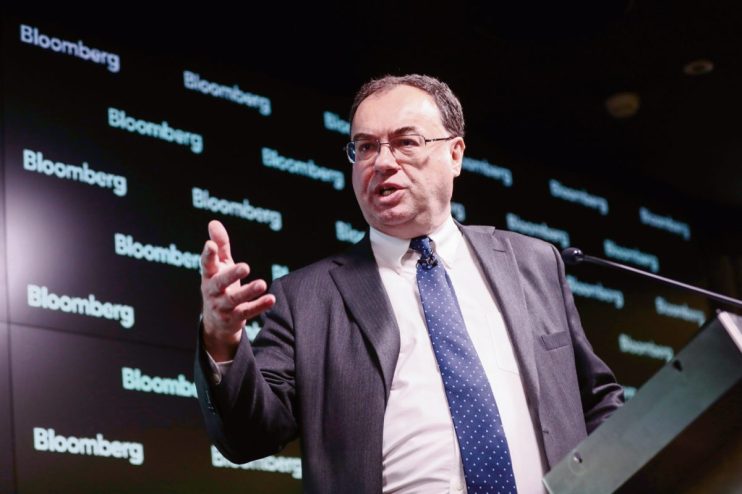
Bank of England Governor Andrew Bailey has suggested that President Trump’s tariffs will have a disinflationary effect on UK prices unless more retaliatory measures kick into effect.
In an interview with CNBC, Bailey said tariffs would slow down UK growth whatever happens but added he would be “encouraged” by a UK trade deal with the US.
He indicated that he may be more concerned about the impacts on growth than on price growth.
“We’re certainly quite focused on the growth shock,” he told CNBC.
“Growth is too weak at the moment, but a big question mark about how much of that is caused by the weak demand and actually is caused by the weak supply side.”
He also rejected suggestions that the UK was close to a recession as he said recent GDP figures showing growth of 0.5 per cent in February were “positive”.
The Bank currently projects inflation to hit a high of 3.75 per cent this year but it is likely to revise its numbers in a matter of weeks. It will be the first update made by a major UK forecaster since Trump’s tariffs came into effect.
Bailey said that redirection of goods to the UK would be “negative for inflation” whereas retaliation would have the opposite effect.
The UK government is not expected to impose extra tariffs though it is consulting businesses on erecting trade barriers.
The International Monetary Fund (IMF) this week suggested price growth in the UK would be higher than any advanced economy due to “domestic pressures” including high energy bills.
It also downgraded the UK’s growth outlook to 1.1 per cent this year along with other countries including the US, France and Germany.
Bailey said a trade deal would not protect the UK from a slowdown in economic growth.
“It’s not just the relationship between the US and the UK, it’s the relationship between the US, the UK and the rest of the world that matters so because the UK is such an open economy,” he said.
“We have to take very seriously the risk to growth. I’ve said a number of times, fragmenting the world economy will be bad for growth.”
The Bank’s Governor spoke to the American news channel from Washington where global finance leaders and economists are convening at a summit hosted by the International Monetary Fund (IMF).
The Bank’s Monetary Policy Committee (MPC), which is led by Bailey, is widely expected to cut interest rates by 25 basis points at its next decision in early May.
Bailey said that rising gilt yields would not “move much policy” as he said a decision to delay a gilt auction earlier this month was made in the “heat of the situation”.
“It really just wasn’t a sensible thing to do to carry out that auction at the time,” he said. “We’ll come back to it.”
The Bank Governor also played down fears around the safety of the US dollar as a safe reserve currency and treasuries as reliable assets in what appeared to be a strong backing of American financial institutions.
“I think a lot of talk about reserve currency safety is overdone,” Bailey said.
“I think it would take a huge shift to change the pattern of reserve currency safety, because a lot goes with that. A lot of the structure of markets is organised around that.”
“Our assessment is that we’ve seen quite a bit of deleverage going on, unsurprisingly, particularly in dollar markets. It’s spilled over into some other markets.
“Longer term investors all take longer to assess how they feel about policy. What I get told, is they too have to factor in in a world of greater uncertainty. How did they begin to look at various their investment strategies and how much will they reassess?
“I think we haven’t seen that [reassessment] yet. It’s too soon, really,” he added.
In a separate event earlier on Thursday at the Peterson Institute for International Economics in Washington, deputy governor Clare Lombardelli suggested that interest rate cuts could take place when inflation was higher than targets.
“You want flexibility in your approach [to inflation],” she said.
Lombardelli also emphasised that the Monetary Policy Committee (MPC) had to explain its decisions and forecasts. This strategy has been in place since 2013 when the Bank was given more responsibility.
“We have to be very clear and transparent on the judgements [we] are making.”